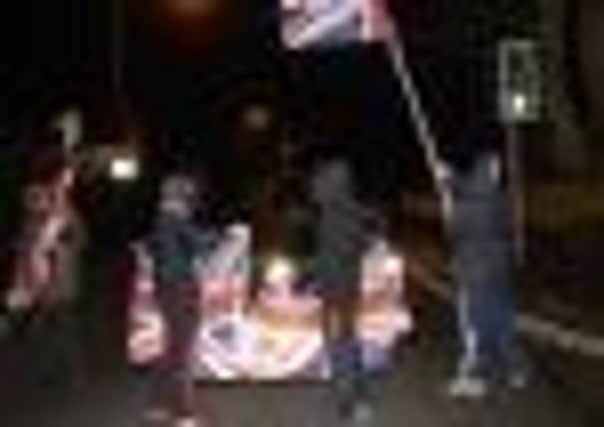Flags protest ‘miss the point’ - McCann


Asked for his opinion on the current situation, Mr McCann told the Sentinel: “We are here to let people take a stand against what is happening with the so-called flag protests.
“It is simply not enough to say that these people are Neanderthals or sectarian. I think the flag protests represent something-they represent an anger and discontent amongst people, that if you like, represent the bottom half of the Protestant community. The point we are making here is that, not that the people in the streets have no reason to feel alienation and anger but that this is the wrong way to go about it and it is addressing the wrong problem.
Advertisement
Hide AdAdvertisement
Hide Ad“The truth of the matter is that they are talking about being left behind, about poverty, about employment about poor educational opportunities-but all those things are happening in the Catholic community as well. And, there is no solution to these problems in one community that would not be a solution also in the other community.
“In other words if people say we want our grievances remedied, they are overdue, this makes no sense. Take for example cuts in benefit, which will affect an awful lot of the people out with Union flags, they are clearly working class, decent people. Indeed some of them have been interviewed on TV and are people who are being treated very badly by society.
“If you talk about benefit cuts, cuts in services, talk about lack of educational opportunities, does anybody seriously imagine that you can get a package of measures that can alleviate those things in the Protestant community alone. Nobody can seriously believe that. So, my argument would be that there is not any reason to protest, but that it is counter-productive for people to go out with flags representing one community and say, we are suffering and we want it solved. It is completely missing the point about society in Northern Ireland.”